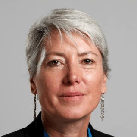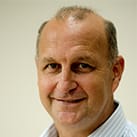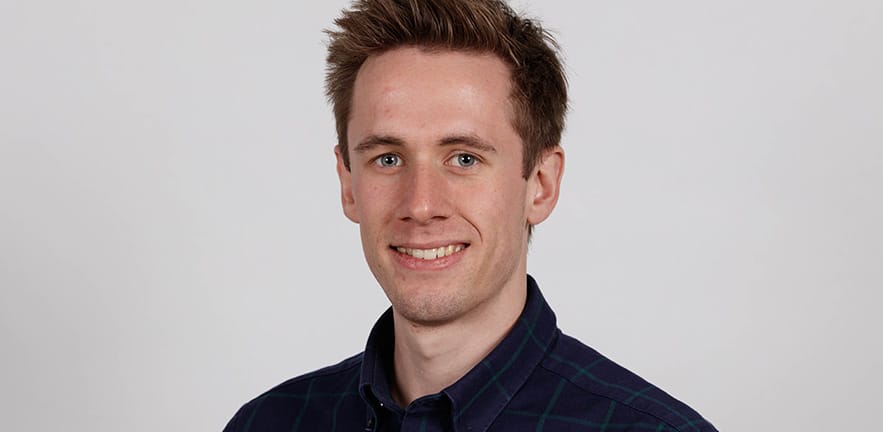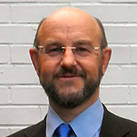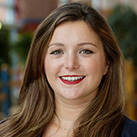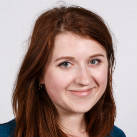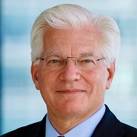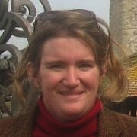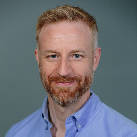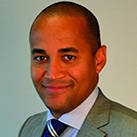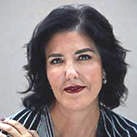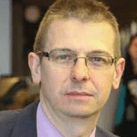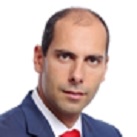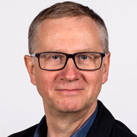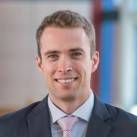11th Risk Summit (2020)

23 Jun 2020
14:00 -17:00
GMT+1
Open to: Specialists and business managers, including threat specialists, academics, policy-makers, practitioners and advisors

Online
(where applicable, further details sent upon registration)
The Resilient Company – Managing Business Risks
The instance of a resilient company in an era of rising societal and economic expectations is even more pronounced during and after a major crisis such as COVID-19. Not only will companies be part of the solution for society’s allocation of resources in response to the current crisis, but they will have to also address latent trends in areas such as artificial intelligence and global climate. The need for corporate resiliency is even more urgent than ever before.
Our 2020 Risk Summit asks what organisational resilience means today and anticipates how that will change in the future. Business disruptions from geopolitical, health, technological, climatic, and trade risks appear to be the new normal. The demand to better recognise and manage risks calls to answer a widening set of stakeholders, while still satisfying investor aspirations. As companies realign to meet these demands, we ask how leadership, strategy, process, and culture adapt to enable the company of the future to prosper.
We invite participation from a wide variety of specialists and business managers, including threat specialists, academics, practitioners and advisors to explore these topics together.
Registration closed
Registration for this event is closed. If you are interested to hear about upcoming events and other Centre-related news and resources, please join our mailing list.

Principal knowledge partner
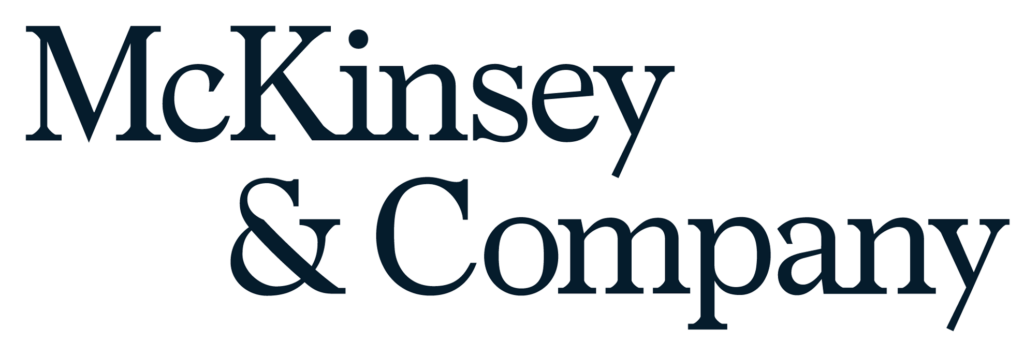
Research partners
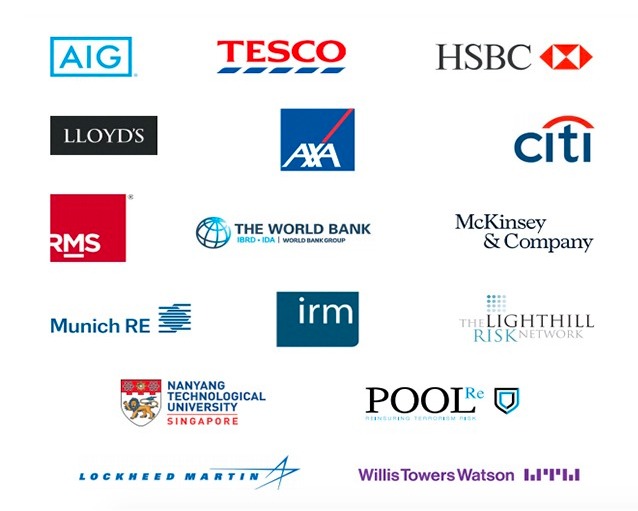
Programme
Day 1
23 June 2020
14:00 – 14:10
Dr Michelle Tuveson, Chairman & Executive Director, Centre for Risk Studies
14:10 – 14:30
Plenary Session 1: Broader Stakeholder Expectations
Professor Michael Power, Professor of Accounting, The London School of Economics and Political Science
14:30 – 15:00
Dr Michelle Tuveson, Chairman & Executive Director, Centre for Risk Studies
- Colin Church, Global Head of Crisis Risk Management and Climate Risk, EMEA, Citi
- Dante Disparte, Vice Chair/Head of Policy and Communications, Libra Association
- Aileen Guiney, Senior Director, Enterprise Risk, at Target Corporation
- Professor Michael Power, Professor of Accounting, The London School of Economics and Political Science
15:00 – 15:30
Plenary Session 2: Resilient Organisations
Dr Andrew Coburn, Chief Scientist, Centre for Risk Studies
15:30 – 15:50
Plenary Session 3
Mihir Mysore, Global Leader, Crisis Response & Resilience, McKinsey & Company
15:50 – 16:00
Moderated by Dr Aleksander Petrov, Partner, McKinsey & Company and Professor Daniel Ralph, Academic Director, Centre for Risk Studies
- The ‘Three Trillion Dollar Financial Exposure to Stranded Fossil Fuel Assets’ – Risks & Opportunities – Moritz Baer, MPhil Candidate in Environmental Policy, University of Cambridge
- All Bottled Up: Lifting the Lid on Plastic Risk in the UK Beverage Industry – Bradley Gibb, MBA candidate, Cambridge Judge Business School
- Insure or Unsure? A Case of the Basis Risk Dilemma in the Developing World – Sam Vosper, PhD candidate, Department of Land Economy and researcher, Cambridge Centre for Environment, Energy and Natural Resource Governance (C-EENRG)
16:00 – 16:20
Plenary Session 4
Keynote: Foreseeing a Revolution in Corporate Performance Metrics
Sarah Gordon, Chief Executive Officer, Impact Investing Institute and Former Business Editor at the Financial Times
16:20 – 16:50
Moderator: Professor Daniel Ralph, Academic Director, Centre for Risk Studies, and Professor of Operations Research, Cambridge Judge Business School
- Sarah Gordon, Chief Executive Officer, Impact Investing Institute and former Business Editor at the Financial Times
- Professor Alan Jagolinzer, Professor of Financial Accounting at Cambridge Judge Business School and Director, Centre for Financial Reporting & Accountability
- Ed Jenkins, Chief Risk Officer, Asia Pacific & Group General Manager, HSBC
- John Low, Head of Risk and Health & Safety at Game Retail, UK & Northern Ireland
16:50 – 17:00
Simon Ruffle, Director of Technology and Innovation, Centre for Risk Studies
Featured content
Pre-released week of 15 June 2020
Shawn Henry, President, CrowdStrike Services
Risk Flashes: How COVID Has Changed the Risk Landscape
Dr Scott Kelly, Chief Economist, Centre for Risk Studies
Ken Deng, Lead Financial Risk Research, Centre for Risk Studies
Tamara Evan, Lead Business Intelligence, Centre for Risk Studies
Dr Jennifer Daffron, Lead Technology Risk Research, Centre for Risk Studies
Oliver Carpenter, Lead Technology Risk Research, Centre for Risk Studies
Dr Jenna Dittmar, Pandemic Risk Research, Centre for Risk Studies
Jennifer Copic, Lead Liability Risk Research, Centre for Risk Studies
Professor D’Maris Coffman, Professor of Economics and Finance of the Built Environment, The School of Construction and Project Management, The Bartlett, University College Londo
Tina Fordham, Partner and Head of Global Political Strategy, Avonhurst
Michael Kitson, University Senior Lecturer in International Macroeconomics, Cambridge Judge Business School
Financial History’s Lessons for Present-Day Investors
Rowan Douglas, CEO Capital, Science & Policy Practice, Willis Towers Watson & Willis Research Network
Larry Cristini, Head of Global Crisis Management, Facebook
Keynote speakers
Sarah Gordon
Chief Executive Officer, Impact Investing Institute and Former Business Editor at the Financial Times
Sarah Gordon is the Chief Executive of the Impact Investing Institute and the former Business Editor at the Financial Times. Before joining the Financial Times 18 years ago, Gordon worked in emerging markets fund management for Citigroup’s asset management business and at Foreign & Colonial, reviewing political and economic events and producing analysis of the global economy. She started her career working for the UN Conference for Trade and Development debt management programme in Geneva. She was a panel member of the recent independent inquiry into the future of civil society, led by Julia Unwin CBE, and was formerly a trustee of CSV, one of the UK’s largest volunteering charities.
Professor Michael Power
Professor of Accounting, London School of Economics
Michael Power is Professor of Accounting at the London School of Economics. Educated at St Edmund Hall, Oxford and Girton College Cambridge, he is a Fellow of the Institute of Chartered Accountants in England and Wales (ICAEW), an Associate member of the UK Chartered Institute of Taxation, and an honorary fellow of the Institute of Risk Management. Formerly on the board of St James’s Place plc from 2005-2013 and currently a non-executive Director of RIT Capital Partners plc and Chairman of St James’s Place International. He also has a number of advisory positions for public bodies, including the Financial Reporting Council, and was Director of the Centre for Analysis of Risk and Regulation at LSE until April 2014. Power holds honorary doctorates from the University of St Gallen, Switzerland and the University of Uppsala, Sweden. His research and teaching focus on regulation, accounting, auditing, internal control, risk management and organisation theory. His major works are The Audit Society: Rituals of Verification (Oxford 1999) and Organized Uncertainty: Designing a World of Risk Management (Oxford 2007).
Mihir Mysore
Global Leader, Crisis Response & Resilience, McKinsey & Company
Mihir founded and now leads McKinsey’s Crisis Response and Resilience service lines globally. As one of McKinsey’s foremost crisis practitioners, Mihir has served organisations through more than 60 major crises and disruptions in the public and private sectors. Mihir has authored the primary frameworks, approaches and tools that McKinsey uses in its crisis response approaches. He also convenes McKinsey’s Crisis Advisory Board. Mihir attended the Indian Institute of Technology, (B. Tech, M. Tech.) and Stanford University (M.S.).
Speakers
Andrew Coburn
Chief Scientific Advisor, Centre for Risk Studies
Dr Andrew Coburn manages the External Advisory Board of the Centre for Risk Studies, coordinating the inputs of consumers of research into the Centre’s risk agenda. Andrew is the principal coordinator of the research programme on ‘System Shock’ at the Centre.
Andrew is one of the leading contributors to the creation of the class of catastrophe models that over the past 20 years has come to be an accepted part both of business management in financial services and of public policy making for societal risk. He has extensive experience in developing models and using them for business decision support. Andrew has also provided research inputs into government policy, such as House of Congress legislation on terrorism risk management policy and urban planning for disaster mitigation in Mexico, Metro Manila, and Southern Italy.
Dr Andrew Coburn is a member of the senior management of Risk Management Solutions, the leading provider of catastrophe risk models to the insurance industry.
Dr Jennifer Daffron
Cyber Research Lead, Cambridge Centre for Risk Studies
Dr Jennifer Daffron is the Cyber Research Lead at the Cambridge Centre for Risk Studies. Her research interests include defining and exposing cyber threat vulnerabilities on organisational and human behavioural platforms. Jennifer holds a PhD in Experimental Psychology from the University of Cambridge.
Rowan Douglas CBE
CEO of the Capital, Science & Policy Practice, Willis Towers Watson
Rowan Douglas is CEO of the Capital, Science & Policy Practice at Willis Towers Watson, a leading global advisory, broking and solutions company. Previously, he served on the Board of the Group’s reinsurance division, Willis Re, as CEO of Global Analytics.
In 2011, Rowan was appointed to the UK Prime Minister’s Council for Science & Technology; he is also a member of the Royal Society’s Working Group on Resilience to Climate Risk and Extreme Weather and chairs the Willis Research Network of 50 universities worldwide.
He has held various appointments within the UN and other international organisations and was awarded a CBE in the 2016 New Year’s honours for services to the economy through risk, insurance and sustainable growth. Rowan sits on the Executive Committee of the International Insurance Society (IIS), New York from which he received the Kenneth R. Black Award in 2014.
Alan Jagolinzer
Professor of Financial Accounting
PhD (Pennsylvania State University)
Scott Kelly
Assistant Research Professor, Centre for Risk Studies
Scott leads the research on macroeconomic modelling. Within the centre, macroeconomic models are used to describe the global and regional impacts that occur as a result of different risk scenarios developed as part of the Cambridge Risk Framework. Research includes estimating the economic impact of exogenous shocks and their propagation in global networks. Specific research areas include the analysis of international trade, supply chain analysis, sector analysis and the estimation of supply chain risk. Prior to joining the Centre for Risk Studies research included modelling the macroeconomic impact of disasters, the economics of infrastructure, complex systems modelling, input output analysis, econometrics, energy systems modelling and sustainable development. Specialising in applied modelling approaches, expertise has been developed in a variety of different statistical techniques such as multiple linear regression, panel methods and structural equation modelling. More recently knowledge has been developed in the application input-output models, social network analysis and agent based models.
John Low
Head of Risk, Game Retail
John Low heads up all risk function teams for the national high street chain Game Retail Ltd along with the Player 1 Events and the Belong brands where over the last 11 years he has held risk management and senior operational positions. His wide-ranging responsibilities include Enterprise Risk Management (ERM), internal audit (UK and Spain), insurance, information security, loss prevention, multi-channel fraud payments and health & safety.
John has a strong and diverse retail background having previously worked for a number of UK big retail brands including the Co-operative Group (food) in senior operational roles and the retail management section of Bass. He is also currently a member of the Institute of Risk management (IRM) and the serving chairperson of the omni channel ORIS forum committee that has extensive retail high street representation.
He has previously provided voluntary service to influential groups and forums having worked with the National Police Chiefs Council (NPCC) and the Home Office on the roundtable “tackling the market for stolen goods” and on two working groups for the prevention of acquisitive crime.
Professor Daniel (Danny) Ralph
Academic Director, Cambridge Centre for Risk Studies
Professor of Operations Research, University of Cambridge Judge Business School
Professor Danny Ralph is a Founder and Director of the Centre for Risk Studies, Professor of Operations Research at Cambridge Judge Business School, and a Fellow of Churchill College.
Danny received his PhD in 1990 from the University of Wisconsin Madison. He was a faculty member of the Mathematics & Statistics Department at the University of Melbourne before coming to Cambridge University for a joint appointment in the Engineering Department and Cambridge Judge Business School.
Danny’s research interests include: risk in business decision making; risk aversion in electricity markets; methods and models for optimisation problems and equilibrium systems. Specific projects undertaken in collaboration with the banking and insurance industry (Catlin, HSBC, ICBC, Lloyd’s, Munich Re, Risk Management Solutions, Swiss Re) cover emerging risk scenarios, financial stress testing and a global ranking of cities by risk exposure. Engagements with other sectors include electricity consultancies (Artelys, LCP), oil and gas (Shell Exploration, Statoil) and retail (BT Retail, Gap) on decision making under high uncertainty. Public service contributions to the UK Cabinet Office, UK Industry and Parliamentary Trust, UK Office of the Government Chief Scientific Advisor, and United Nations World Humanitarian Summit.
Professor Ralph is a member of the Australian Mathematical Society, INFORMS, the Mathematical Optimization Society and SIAM. He was Editor-in-Chief of Mathematical Programming (Series B) from 2007-2013 and has served on the editorial boards of Mathematics of Operations Research and the SIAM Journal on Optimization, as well as the SIAM-MPS book series on optimisation.
Dr Michelle Tuveson
Executive Director, Cambridge Centre for Risk Studies
Dr Michelle Tuveson is a Founder and Executive Director at the Cambridge Centre for Risk Studies hosted at the University of Cambridge Judge Business School. Her responsibilities include the overall executive leadership at the Centre. This includes developing partnership relationships with corporations, governments, and other academic centres. Dr Tuveson leads the Cambridge CRO Council and she chairs the organising committee for the Cambridge Risk Centre’s Annual Risk Summits. She is one of the lead organisers of the Aspen Crisis and Risk Forum. She is an advisor to the World Economic Forum’s 2015 Global Risk Report and a contributor to the Financial Times Special Report on Risk Management. She is also an advisor to a number of corporations and boards as well as a frequent conference speaker.
Dr Tuveson has worked in corporations within the technology sector with her most recent position in the Emerging Markets Group at Lockheed Martin. Prior to that, she held positions with management strategy firm Booz Allen & Hamilton, and US R&D organisation MITRE Corporation. Dr Tuveson’s academic research focuses on the application of simulation models to study risk governance structures associated with the role of the Chief Risk Officer. She was awarded by the Career Communications Group, Inc. as a Technology Star for Women in Science, Technology, Engineering and Maths (STEM). She earned her BS in Engineering from the Massachusetts Institute of Technology, MS in Applied Math from Johns Hopkins University, and PhD in Engineering from the University of Cambridge. She is a member of Christ’s College, Cambridge.
Colin Church
Global Head of Crisis Risk Management and Climate Risk, EMEA, Citi
Colin Church is Global Head of Crisis Risk Management and Climate Risk, EMEA, Citi. He is responsible for managing risk across Citi’s Institutional Client Group, including Citi Private Bank, Consumer and Commercial Banking businesses in EMEA. Colin is a member of the EMEA Operating Committee, Global Risk Management Executive Committee and Global Information Security Committee. Colin managed Citi’s cross-divisional contingency planning and crisis management events, notably orchestrating Citi’s responses to the Arab Spring, GIIPS, Russia/Ukraine, Argentina (2016) and most recently UK Referendum and Brexit contingency plans. He established Citi’s “second line” Cyber Risk Management Function and is a member of the Bank of England’s Cross Market Operational Resilience Group (CMORG).
Professor D'Maris Coffman
Professor of Economics and Finance of the Built Environment, The School of Construction and Project Management, The Bartlett, University College London
In January 2018, D’Maris was appointed to a professorial chair in Economics and Finance of the Built Environment. D’Maris arrived at UCL as a Senior Lecturer (equivalent to Associate Professor in the USA system) in September 2014. In February 2017, D’Maris took over as Director (Head of Department) of BSCPM. In the last 18 months, they have grown to about 640 students, 58 staff, and £12 in teaching income. Some of the recent growth comes from the integration of Bartlett’s IDIBE into CPM. D’Maris research interests span financial history/historical finance, infrastructure, construction, real estate and climate change.
Larry Cristini
Head of Global Crisis Management, Facebook
Larry has spent over 15 years advising multinational corporations on anticipating and managing strategic risks through more resilient and robust planning and proactive crisis and issues management. He has extensive experience integrating strategic risk into business planning, building corporate programs, providing real-time crisis response support, conducting crisis simulations, and training c-suite and corporate functional leads.
Dante Disparte
Vice chairman and Head of Policy and Communications for the Libra Association
Dante Disparte is the Vice chairman and Head of Policy and Communications for the Libra Association, a newly-formed organisation that has brought together social impact organisations and a diverse group of leading businesses from around the world to create a low-friction, high-trust payment system that empowers billions of people.
Dante comes to the Libra Association with two decades of experience as an entrepreneur, business leader and global risk expert, most recently as founder and head of Risk Cooperative, a strategic risk advisory and insurance brokerage based in Washington, D.C. He has lived and worked in Europe, the United States and the Caribbean, and has conducted business all over the world. In addition to leading Risk Cooperative since its inception five years ago, Dante also serves as an appointee on the Federal Emergency Management Agency (FEMA) National Advisory Council, the United States’ federal emergency response agency. He is a founding advisor of the Global Blockchain Business Council and a senior fellow with the Blockchain Trust Accelerator where he supports technology and digital transformation initiatives.
Dante is a frequent speaker and commentator on business and political issues shaping the world. His views on risk, economic competitiveness and security issues are regularly featured in leading media and publications, such as Harvard Business Review, BBC, Forbes and International Policy Digest.
Dante is a graduate of Harvard Business School and holds an MSc in Risk Management from the NYU Stern School of Business and a BA in International and Intercultural Studies from Goucher College. He is the co-author “Global Risk Agility and Decision Making” (Macmillan, 2016) and was recognised as one of the 40 leaders under 40 by the Washington Business Journal and in the inaugural Powermeter 100 list.
Tina Fordham
Managing Director, Chief Global Political Analyst, Citi
Tina Fordham is Managing Director and Chief Global Political Analyst at Citi, the first to hold this position. Tina’s work focuses on hard-to-quantify risks such as geopolitics and socioeconomic factors, including “vox populi” risk, the idea that public opinion is a risk factor in the investment environment, as well as the role of women in the global economy.
Named as a “Changemaker” in the Evening Standard‘s 2016 Progress 1000 list, as well as in the “Top 100 Most Influential Women in Finance”, Tina joined Citi in 2003, where she advises corporate boards and institutional investors on the implications of macro political developments. Tina was appointed in 2016, by UN Secretary-General Ban Ki Moon, to the UN’s first High-Level Panel on Women’s Economic Empowerment, which also includes IMF president Christine Lagarde.
Previously, Tina served as senior advisor in the UK Prime Minister’s Strategy Unit and head of global political risk at Eurasia Group, where she started the firm’s financial markets research business. Fordham earned her master’s degree in international affairs at Columbia University, and serves on the Advisory Board of Columbia’s School of International and Public Affairs.
Shawn Henry
President of CrowdStrike Services
As President of CrowdStrike Services, Shawn leads a world-class team of cybersecurity professionals who aggressively and effectively investigate and mitigate targeted attacks on computer networks. Under his leadership, CrowdStrike has been engaged in significant proactive and incident response operations across every major commercial sector, protecting organisations’ sensitive data and networks.
Shawn retired as FBI Executive Assistant Director (EAD) in 2012, overseeing half of the FBI’s investigative operations, including all FBI criminal and cyber investigations worldwide, international operations, and the FBI’s critical incident response to major investigations and disasters. During his 24-year career, he held a wide range of operational and leadership roles in four FBI Field Offices and FBI Headquarters.
Shawn has been a keynote speaker in some of the largest cyber conferences in venues around the world, a regular contributor on every major domestic television network, and is currently a cybersecurity/national security analyst, contributor, and consultant exclusively for NBC. Shawn serves on the faculty and is a Board Leadership Fellow at the National Association of Corporate Directors (NACD) where he educates corporate boards and directors about complex cybersecurity issues. He currently serves on the Strategic Advisory Committee of the Global Cyber Alliance.
Shawn earned a bachelors of business administration from Hofstra University and a Master of Science in Criminal Justice Administration from Virginia Commonwealth University. He is a graduate of the Homeland Security Executive Leadership Program of the Naval Postgraduate School’s Center for Homeland Defense and Security.
Ed Jenkins
Chief Risk Officer, Global Banking and Markets, HSBC
Ed Jenkins is Chief Risk Officer, Asia Pacific, Group General Manager at HSBC. Previous roles within HSBC include Global Head of Wholesale Credit and Market Risk, Chief Risk Officer, Global Banking and Market, Global Head of Independent Model Review and Model Risk Governance and Chief Accounting Officer, Global Banking and Markets.
Prior to HSBC, Ed was Global Head of Equity Valuation Group, JP Morgan Chase.
Michael Kitson
Associate Professor in International Macroeconomics
BA (University of Cambridge)
Aleksander Petrov
Senior Risk Partner, McKinsey & Company
Aleksander Petrov is Senior Risk Partner at McKinsey & Company and leader of the London Risk Advanced Analytics Group. He has broad experience in capital markets, derivatives pricing and portfolio management, supporting clients on a variety of risk topics focused on asset analysis, stress testing and real estate. Prior to joining McKinsey & Company in 2009, Aleksander spent approximately ten years in various quantitative and trading roles within the European fixed income and structured finance industry.
Simon Ruffle
Director of Research & Innovation, Centre for Risk Studies
Simon Ruffle is a member of the Executive Team and is responsible for the overall research framework of the Centre. He is researching into innovative sourcing of business economic data and is leading the cyber threat research track. He has a background in natural hazards and the insurance industry.
Risk Prize finalists
Moritz Baer
Master of Philosophy in Environmental Policy candidate, University of Cambridge
Moritz Baer is a candidate for the Master of Philosophy in Environmental Policy at the University of Cambridge. He is currently involved in the project FRANTIC ‘Financial Risk and the Impact of Climate Change’ in cooperation with CISL and C-EENRG in Cambridge.
He holds a BSc in Economics from the Vienna University of Economics and Business (WU) and a BA in Political Science from the University of Vienna.
Prior to commencing MPhil studies, Moritz worked as a Research Associate at the Ecological Economics Institute at WU in Vienna on sustainable finance and political economy issues as part of the project ‘MISTRA Financial System’ funded by the Swedish Foundation for Strategic Environmental Research.
Following completion of his MPhil, Moritz will work on climate-related financial risk in the ‘Directorate Générale Macroprudential Policy and Financial Stability‘ at the European Central Bank.
Sam Vosper
PhD candidate, Department of Land Economy and researcher, Cambridge Centre for Environment, Energy and Natural Resource Governance (C-EENRG).
Sam is a PhD candidate at the Department of Land Economy and researcher at the Cambridge Centre for Environment, Energy and Natural Resource Governance (C-EENRG).
His core research area is in the field of environmental and development economics, exploring issues of climate related risk and microfinance in Africa. At present, Sam is working on a larger project which aims to remotely track changing risk preferences of 20,000 Kenyan farmers over an entire agricultural season and across an extensive geography.
Previously, Sam has completed a bachelor’s degree in Economics, Mathematics and Environmental Science, in South Africa, as well as an MPhil in Environmental Policy at Cambridge. He has also worked as an environmental consultant in South Africa, advising on issues of environmental risk (emissions and energy) for both industry and government.
Broadly Sam is interested in how we as individuals, businesses and governments aim to navigate uncertainty and direct development amidst the imminent climate challenges.
Bradley Gibb
MBA candidate, Cambridge Judge Business School
Bradley is an MBA candidate at Cambridge Judge Business School.
A qualified accountant, Bradley spent his 10-year professional career in finance and accounting roles within the FMCG industry. The majority of his career has been spent at Coca-Cola Amatil, where he joined on the Corporate Graduate Programme in Sydney, Australia, upon completing his undergraduate degree. During his tenure at Coca-Cola Amatil he had the opportunity to work across a number of developed and developing markets.
Bradley first discovered an interest in plastic use as Commercial Manager – Group Procurement, where he supported the purchase of both virgin and recycled PET resin across six countries. He has continued a passion for sustainability and plastic waste and am currently assisting Nestle, through the MBA on a Global Consulting Project, investigating the design of container deposit return schemes in North America.


